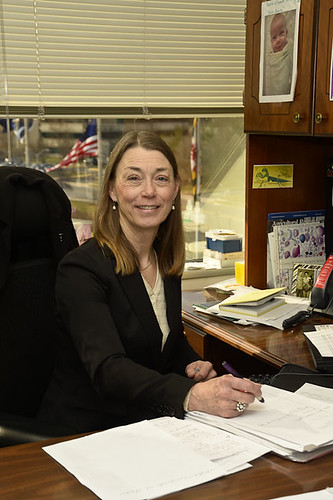
When I learned I was chosen to lead USDA’s new emergency, multi-agency response framework to combat one of the most serious citrus diseases in the world, I felt both humbled and honored. I relish the opportunity as a scientist to partner with other federal agencies, states, and industry to combat a disease—huanglongbing (HLB or citrus greening)—that has devastated so many citrus groves in Florida and threatens other citrus-producing states.
When Secretary Vilsack established this new framework—USDA’s HLB Multi-Agency Coordination (MAC) Group—he directed us to fund the most promising, practical research to give growers tools to use against HLB as quickly as possible. USDA provided $1 million in funding, and the 2014 Federal budget includes an additional $20 million for HLB research, which the Group will collectively determine how best to spend.
Last week, we held our first face-to-face meeting in Riverdale, Md., and I’m thrilled with the energy, dedication, and passion of this team. The Group includes representatives of the California, Florida, and Texas citrus industries; Arizona, California, Florida, and Texas State Departments of Agriculture; and USDA’s Animal and Plant Health Inspection Service (APHIS), Agricultural Research Service, and National Institute of Food and Agriculture. We discussed our roles and responsibilities, identified promising research opportunities, and began developing the process for making funding decisions.
The stakes are high with this disease, which causes green, misshapen, and bitter-tasting citrus fruit and eventually kills the tree. In Florida, HLB has caused billions of dollars in lost production and resulted in thousands of lost jobs. The disease has spread to the vast majority of Florida’s citrus-producing areas since its detection in 2005. Due to the clear threat it poses to citrus in Florida and beyond, addressing this disease is a top priority for us at APHIS.
I believe my entire career has prepared me to work on this challenge. I began working for APHIS in 1984 after earning a Ph.D. in Plant Pathology from the University of Minnesota. I’ve had many roles, from identifying plant diseases to serving as the technical expert in bilateral negotiations. But the experience that best prepared me for this new role was a developmental assignment as a Senior Policy Analyst at the White House Office of Science and Technology Policy. I enjoyed working across agencies, tapping the talents of others, and learning new perspectives. As the Lead for the HLB MAC Group, I am putting that experience to good use, making sure we leverage all of our resources, expertise, and perspectives to combat this destructive disease.
I invite you to learn more about this initiative at USDA’s Citrus Disease website and to view this short online video on HLB.


